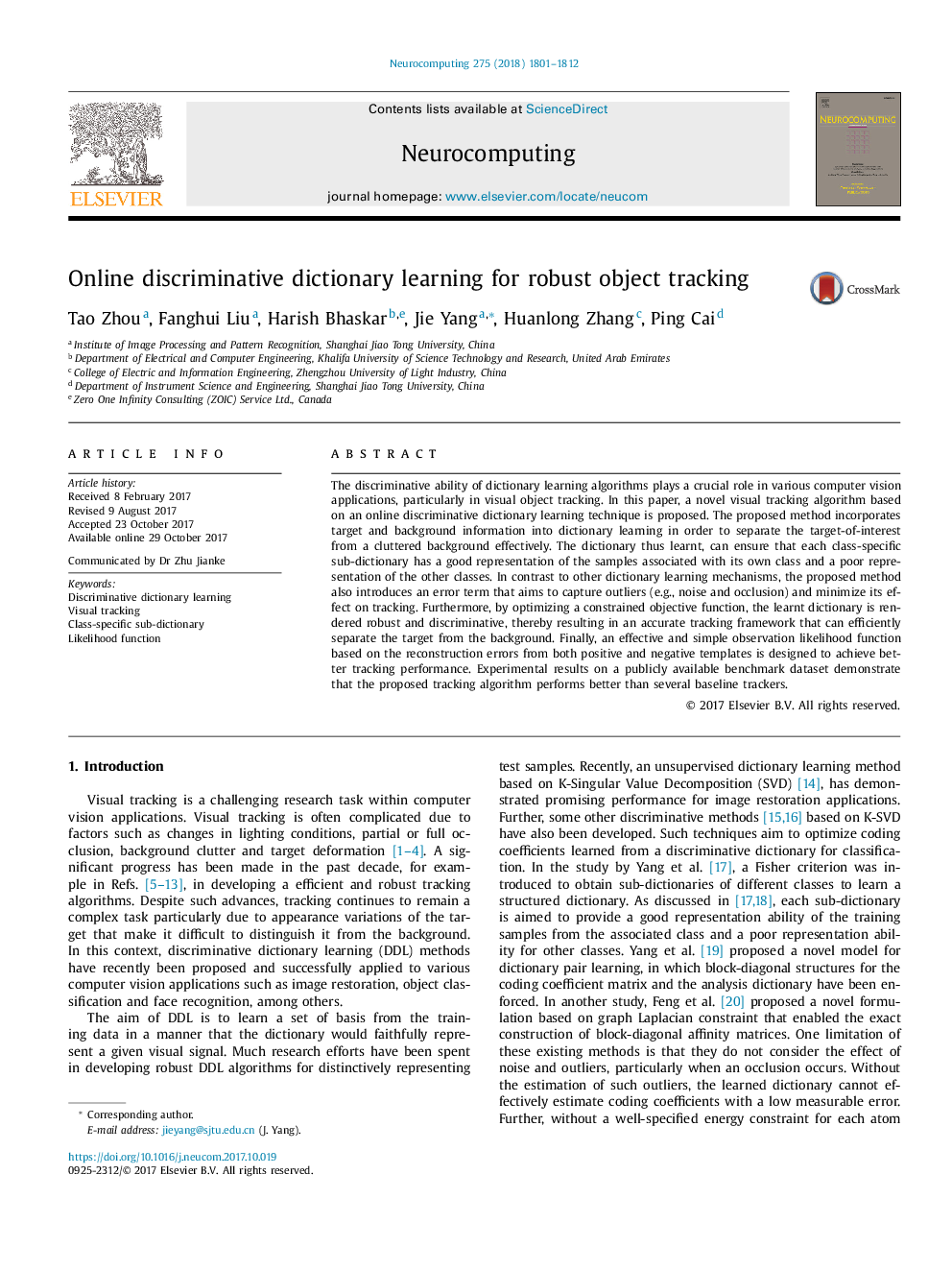ترجمه فارسی عنوان مقاله
یادگیری فرهنگ لغت دیجیتال آنلاین برای ردیابی دقیق شیء
عنوان انگلیسی
Online discriminative dictionary learning for robust object tracking
| کد مقاله | سال انتشار | تعداد صفحات مقاله انگلیسی |
|---|---|---|
| 156769 | 2018 | 12 صفحه PDF |
منبع

Publisher : Elsevier - Science Direct (الزویر - ساینس دایرکت)
Journal : Neurocomputing, Volume 275, 31 January 2018, Pages 1801-1812
ترجمه کلمات کلیدی
یادگیری فرهنگ لغت ردیابی ویژوال کلاس زیر لغت نامه عملکرد احتمالی،
کلمات کلیدی انگلیسی
Discriminative dictionary learning; Visual tracking; Class-specific sub-dictionary; Likelihood function;
ترجمه چکیده
توانایی تشخیص الگوریتم های یادگیری فرهنگ لغات نقش مهمی در برنامه های مختلف بینایی کامپیوتری ایفا می کند، به ویژه در ردیابی شیء بصری. در این مقاله، یک الگوریتم ردیابی ردیابی جدید مبتنی بر تکنیک یادگیری آنلاین فرهنگ لغت ارائه شده است. روش پیشنهادی، اطلاعات هدف و پسزمینه را در یادگیری فرهنگی در اختیار شما قرار می دهد تا به طور موثر از هدف مورد علاقه از یک پس زمینه متمرکز جدا شود. فرهنگ لغت به این ترتیب آموخته می شود، می تواند اطمینان دهد که هر زیربخش فرهنگ خاص دارای نمایه خوبی از نمونه های مربوط به کلاس خود و نمایش ضعیف از کلاس های دیگر است. در مقایسه با سایر مکانیسم های یادگیری فرهنگ لغت، روش پیشنهادی همچنین یک اصطلاح خطا را معرفی می کند که هدف آن گرفتن نقاط ضعف (مثلا سر و صدا و انسداد) و به حداقل رساندن تاثیر آن بر ردیابی است. علاوه بر این، با بهینه سازی یک تابع اهداف محدود، فرهنگ لغت یاد شده به گونه ای قوی و متنوع ارائه می شود که نتیجه آن یک چارچوب دقیق ردیابی است که می تواند هدفمند را از پس زمینه جدا کند. در نهایت، یک تابع احتمال موثر و ساده بر اساس اشتباهات بازسازی از هر دو قالب مثبت و منفی طراحی شده است برای دستیابی به عملکرد ردیابی بهتر. نتایج تجربی در یک مجموعه داده معروف در دسترس عموم نشان می دهد که الگوریتم ردیابی پیشنهادی بهتر از چند ردیاب پایه ای انجام می شود.

